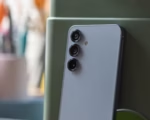Tensor G4 is rumored to feature an octa-core architecture, moving away from the Pixel 8’s Tensor G3 nona-core design
Google’s upcoming Pixel 9 series is expected to feature the new Tensor G4 chipset, which has been the subject of several leaks and speculations. Although the new chipset is tipped to offer some efficiency gains, reports suggest it may not provide substantial performance upgrades over its predecessor, the Tensor G3. Benchmark scores reportedly indicate only minor improvements, leaving some users to question whether the upgrade will be significant enough to warrant excitement.
Pixel 9’s Tensor G4 Chipset Architecture According to reports from Android Authority, the Tensor G4 chipset in the Pixel 9 will feature an octa-core configuration in a 4+3+1 arrangement. This includes four Cortex-A520 efficiency cores, three Cortex-A720 mid-range cores, and one Cortex-X4 performance core. This represents a change from the Tensor G3’s nine-core layout, which had four efficiency cores, four mid-range cores, and one primary core. The shift to eight cores is expected to improve thermal efficiency, potentially reducing heat generation during intensive tasks.
![]()
ARMv9.2 Core Technology The new Tensor G4 chipset is also expected to adopt ARMv9.2 core technology. While this might bring higher clock speeds and improved performance in certain tasks, early benchmark leaks suggest that the overall performance boost could be limited. Compared to the Pixel 8 Pro, the Pixel 9 Pro XL has shown only an 11 percent increase in single-core performance and a mere 3 percent improvement in multi-core performance on Geekbench.
Focus on Efficiency Over Power It appears that Google’s focus with the Tensor G4 is more on efficiency than raw processing power. The reduced core count and refined architecture may help the chipset maintain lower temperatures during extended use, which could improve battery life and thermal stability. However, users expecting a drastic leap in performance between the Pixel 8 and Pixel 9 may be disappointed by the modest benchmark results.
Competing Against Flagship Rivals With the likes of Qualcomm and Apple continuing to push the boundaries of mobile chipset performance, Google’s decision to prioritize efficiency could be a strategic move aimed at optimizing user experience rather than chasing benchmark numbers. Whether this will be enough to keep the Pixel 9 series competitive against other flagship smartphones remains to be seen.


















